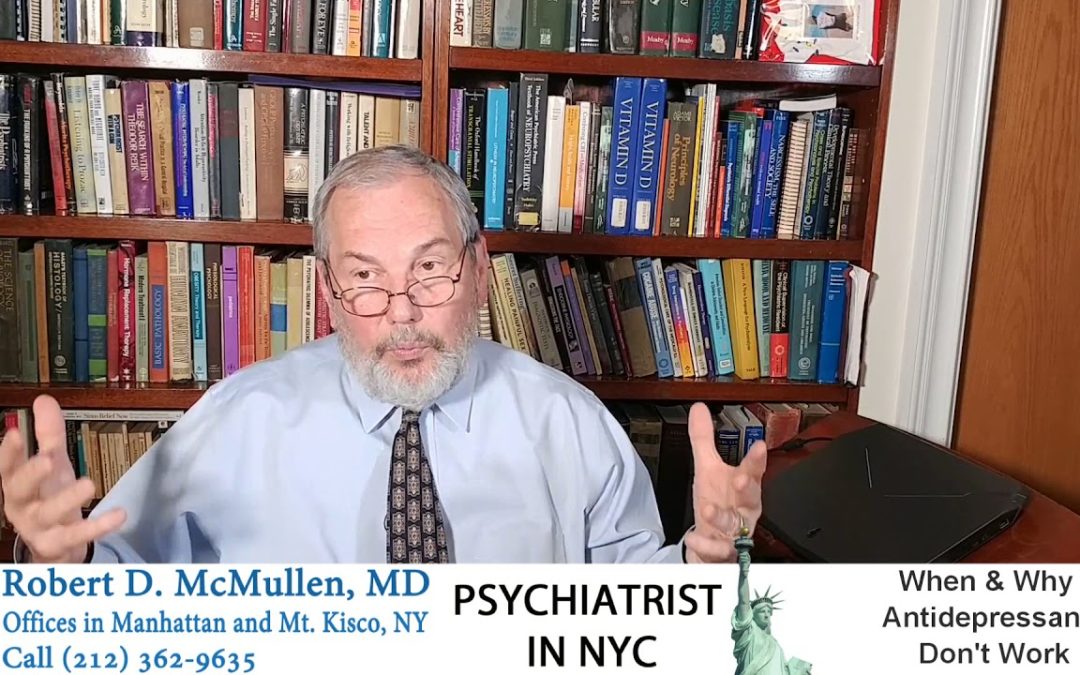Sertraline and Bupropion
Depression and anxiety are two of the most common mental disorders in the United States. According to the National Institute of Mental Health, more than 40 million adults are affected by depression and anxiety each year. Dr. Robert McMullen talks about depression treatment with antidepressants and why sometimes they don’t work as well as hoped, and we review the potential of combining Wellbutrin and Zoloft for treating anxiety and depression.
- Wellbutrin and Zoloft Together
- When Medication Doesn’t Work
- Benefits of Combining Wellbutrin and Zoloft
- Sertraline and Bupropion Can Help Several Types of Depression
- Depression Treatment Near Milwaukee
Wellbutrin and Zoloft Together
Dr. Robert McMullen states sometimes treatment may need combining one antidepressant with another. He does believe we should not try to switch antidepressants too often. Admittedly, there is debate in the medical community about of changing antidepressants too often affects the clinical course. However, it can also be argued that it is more a matter of treating a more treatment-resistant/ill patient population and not due to the medication itself. If there is a partial response, many psychiatrists would recommend pursuing augmentation, such as sertraline (Zoloft) with bupropion (Wellbutrin), this combination had the nickname Welloft. Generally, the two antidepressants tend to be from different classes like in that example. Now, if using an SSRI/SNRI with augmentation has not worked well, a different class of medication is known as the monoamine oxidase inhibitors (MAOIs). They are still known as some of the most powerful antidepressants. Sometimes MAOIs especially have a higher chance of working well in those who have atypical symptoms of depression. This is characterized by excessive sleeping, eating, feeling very heavy, and sometimes excruciating sensitivity to rejection or perceived rejection.
When Medication Doesn’t Work
Another factor that can be involved in an insufficient response to medication is if there is an element of bipolar disorder. Along with the lows, they can have periods where they feel the opposite. They get over-enthused, are overactive, need a lot less sleep, maybe get impulsive, and sometimes their self-esteem is overinflated. If this is the case, there are different approaches various providers have taken. Some start with a clean slate and discontinue all the medications. And/or there may be the introduction of agents used for bipolar depression such as various mood stabilizers (e.g. lamotrigine aka Lamictal, lithium) or neuroleptics/antipsychotics (e.g. lurasidone aka Latuda, quetiapine aka Seroquel).
Medical factors may also be involved. These can include a low vitamin B12 level or hypothyroidism to name a few of the many possibilities. Sometimes the TSH can still be in the normal range but be slightly over 2.5. In such cases, sometimes T3 can be added as an augmenting strategy and potentially more helpful. Some patients may also struggle with metabolizing folate into the biologically active form to cross the blood-brain barrier and in these cases, supplementing with l-methyl folate can be of help.
And of course, we should not underestimate the benefits of generous exercise and socialization being important ingredients to a patient’s recovery. Nutrients are also very important, so food items rich in omega-3 fatty acids such as fish, spinach, tofu, fortified eggs, and milk remain high on the recommended list. Not to mention the cardiovascular protective factors of these dietary changes.
Other treatment modalities can be explored, which include neuromodulation. Transcranial magnetic stimulation (TMS) has a high proportion of responders. Vagus nerve stimulation and electroconvulsive therapy are also options.
Ironically, sometimes the treatment approach involves continuing to take the medication longer. Sometimes in the magnitude of months or up to a year. There are reports of patients who utilized this approach and ultimately experienced full and sustained relief!
Benefits of Combining Wellbutrin and Zoloft
While there are a variety of medication options available for treating anxiety and depression, some patients do not respond well to common treatments. For example, MDD, or major depressive disorder, often does not respond well to singular treatments. MDD can be incredibly persistent and often requires multiple forms of treatment. In these cases, many mental health providers are seeing positive results for their patients when combining Wellbutrin and Zoloft. While both medications are antidepressants, they work differently. Combining Wellbutrin and Zoloft can help provide a broader spectrum of antidepressant benefits for many patients. Some patients report that when combining Wellbutrin and Zoloft, they experience improved moods and a sense of overall well-being in addition to increased energy levels.

Sertraline and Bupropion Can Help Several Types of Depression
The combination of sertraline and bupropion has been found to help a variety of types of depression, and patients with executive dysfunction have also reported improved symptoms. Some of the conditions that benefit most often from combining bupropion and sertraline include:
- Major Depressive Disorder (MDD)
- Seasonal Affective Disorder (SAD)
- Post Traumatic Stress Disorder (PTSD)
Milwaukee WI Depression Treatment Near You
Our Milwaukee therapy practice has seen many benefits to combining Wellbutrin and Zoloft, including increased energy levels, improved mood, and lower levels of anxiety. That said, there are also risks and potential side effects. If you are wondering if combining these medications is right for you, contact a Milwaukee psychotherapist today to discuss your symptoms and treatment options. Your therapist will work closely with you to ensure you’re utilizing the proper medication to improve symptoms and your overall quality of life.

What Our Patients Have to Say
⭐️ ⭐️ ⭐️ ⭐️ ⭐️
“Dr. Yin has been amazing at helping me find the right medication balance. She is thoughtful, genuinely listens to my concerns, and takes action to find solutions to my mental health issues. I am incredibly grateful for her support and assistance.”-Jason B.

